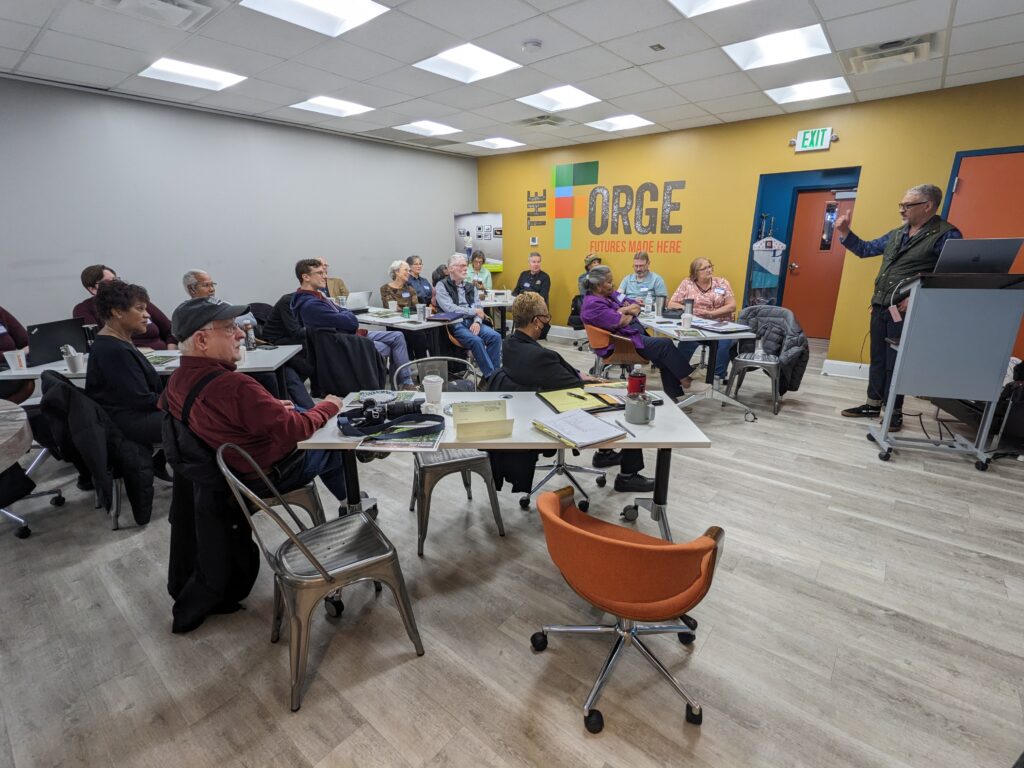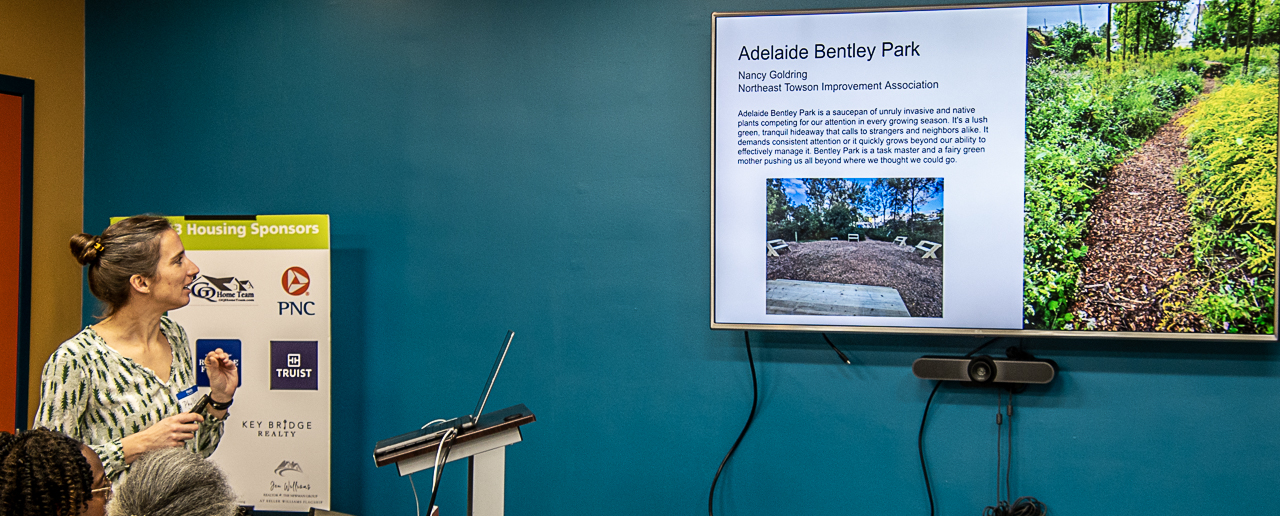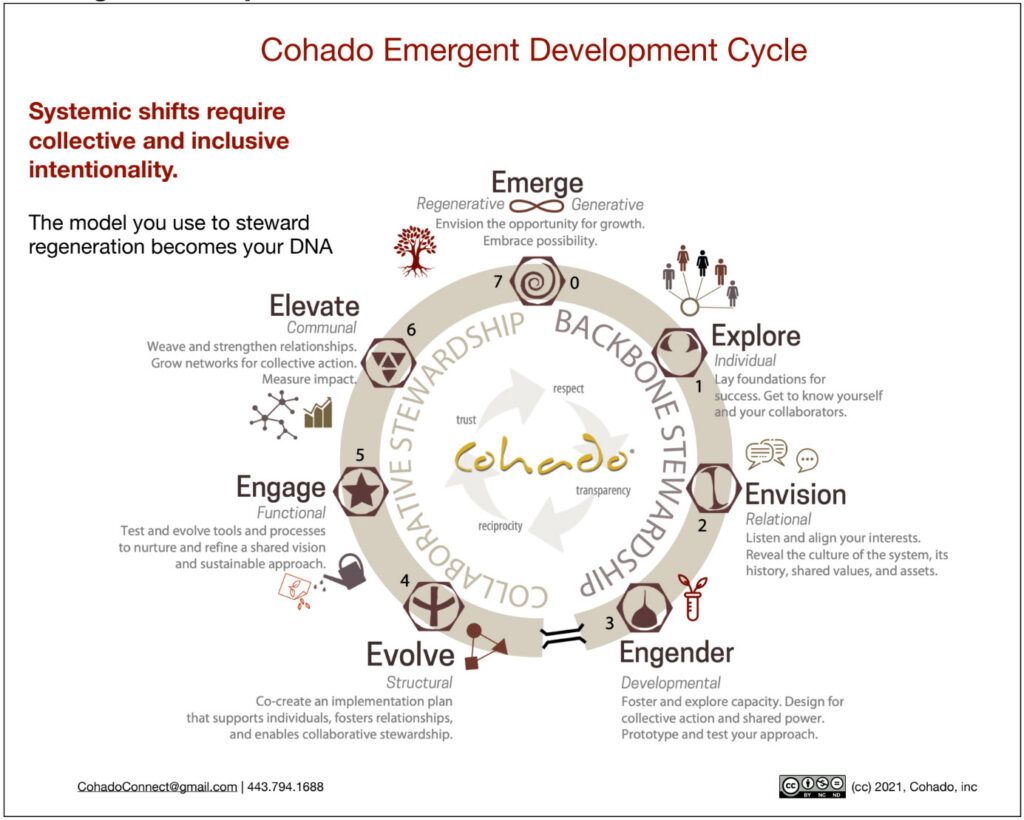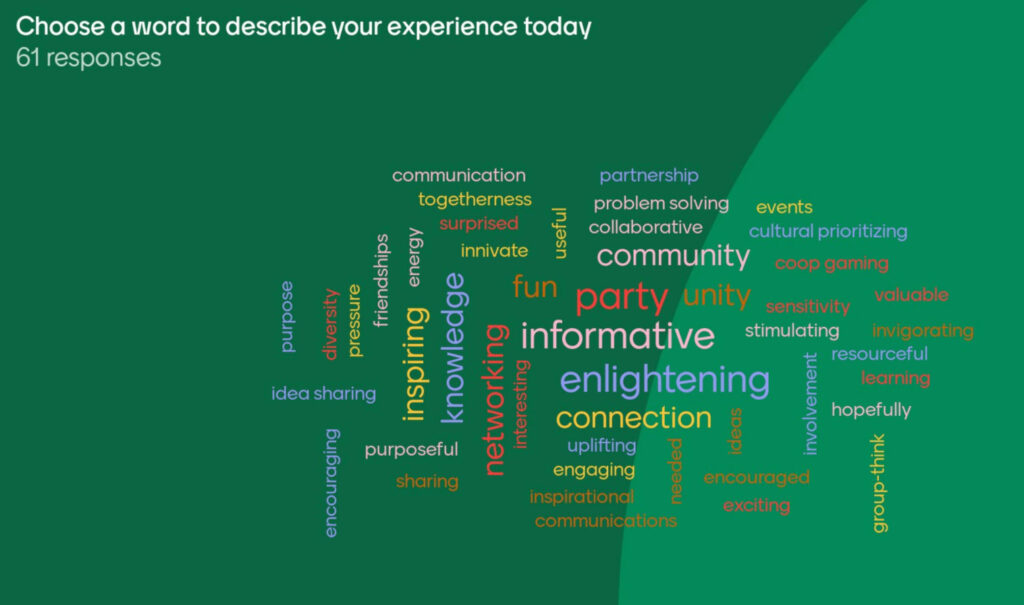
On a chilly Saturday in late January, NeighborSpace staff, Board, and stewardship partners gathered in Dundalk for a facilitated retreat to start the process of developing our strategic conservation plan. The purpose of a strategic conservation plan is to guide our conservation priorities for the next 5-10 years. Outlining priorities and criteria helps to avoid missed opportunities on the one hand and to avoid acquiring properties that don’t fit our mission on the other hand.
The group met at The Forge, Dundalk Renaissance‘s beautiful development center, and Executive Director Phyllis Joris walked everyone through NeighborSpace’s mission and history and all 21 current sites. Each stewardship partner in attendance stood and spoke about their site, both its benefits and challenges. The group also discussed the benefit of open space to communities in general, brainstorming why this area of focus is important on a larger scale.

After lunch, facilitator Paulo Gregory led the group through a few exercises to recognize the group dynamics and recombine them. Paulo walked the smaller reformed groups through the Cohado Emergent Development Model in order to, in his words, “provide a framework for understanding collaborative organizing to engage the community to achieve collective goals.” Paulo then led a game of Cohado, similar in gameplay mechanics to dominos, where the goal is to work cooperatively to close loops and utilize all resources without waste, instead of playing competitively and allowing branches to sprawl. Attendees were surprised at how different this gameplay felt to typical tabletop games. Folks were engaging actively with each other, showing their hands openly, and working together to problem-solve and to look ahead to make not only the current move beneficial to the group, but the next few moves as well.



With the groups warmed up and working together, Paulo led a discussion about organizational focus areas and priorities and then each group worked to brainstorm both the most critical needs of the organization and some strategies to meet those needs. One of the most significant priorities and key takeaways from the entire day was the resounding importance of and need for community. A place to come together as a community is one of the most foundational things people seek in neighborhood open space, yet it is also cultivating and engaging community members that helps neighborhood open spaces thrive. They, and we, depend on each other.

Thank you to all of the stewardship partners who participated for enlightening and informing us. Thank you also to Paulo and Jenny of Cohado for providing an uplifting experience, and Dundalk Renaissance for use of their excellent space. What’s next? From here, NeighborSpace will take some time to digest and will work over the next few months on formulating the full strategic conservation plan. Once it is complete, we will announce it on our website and social media. Stay tuned!
